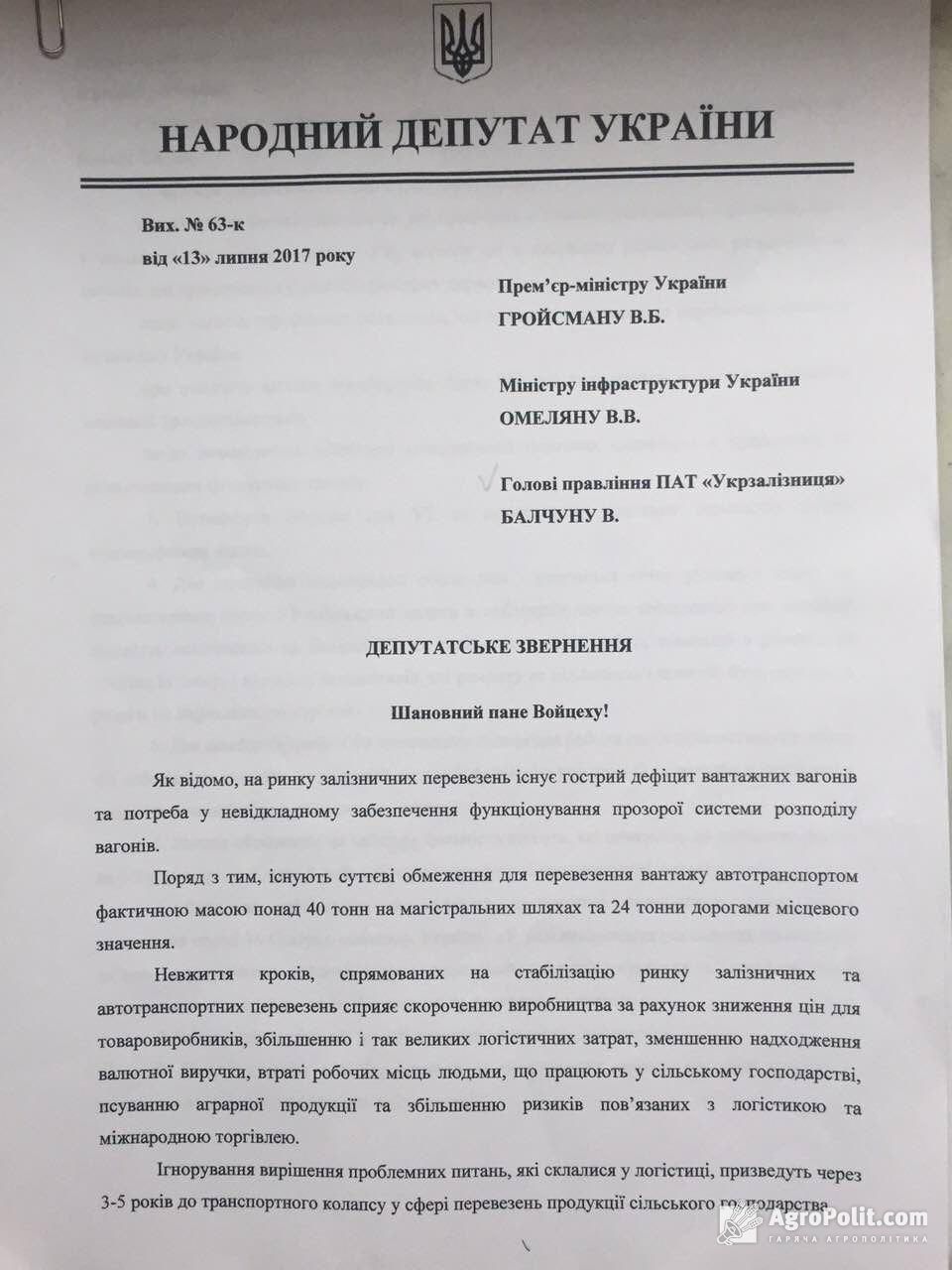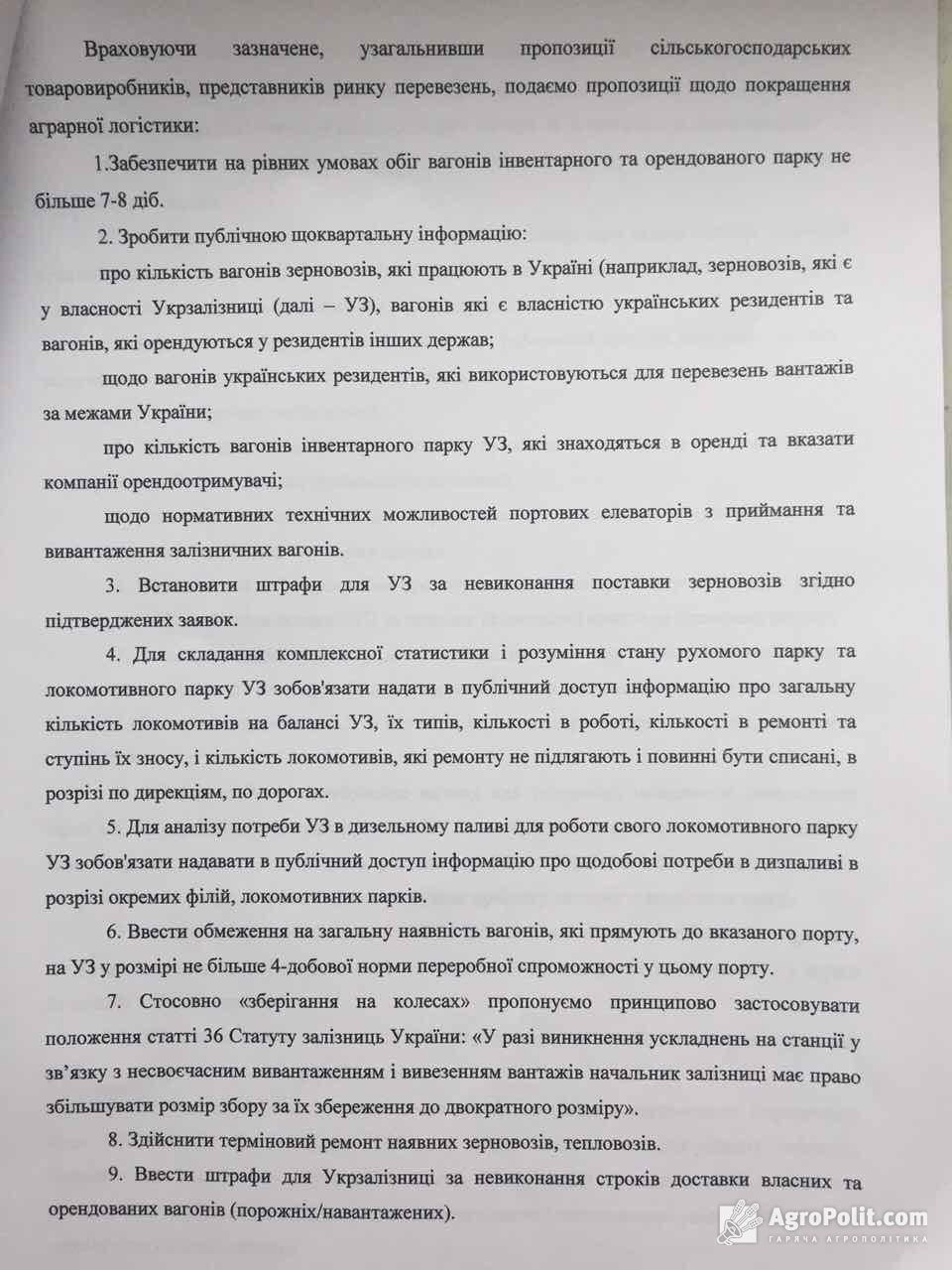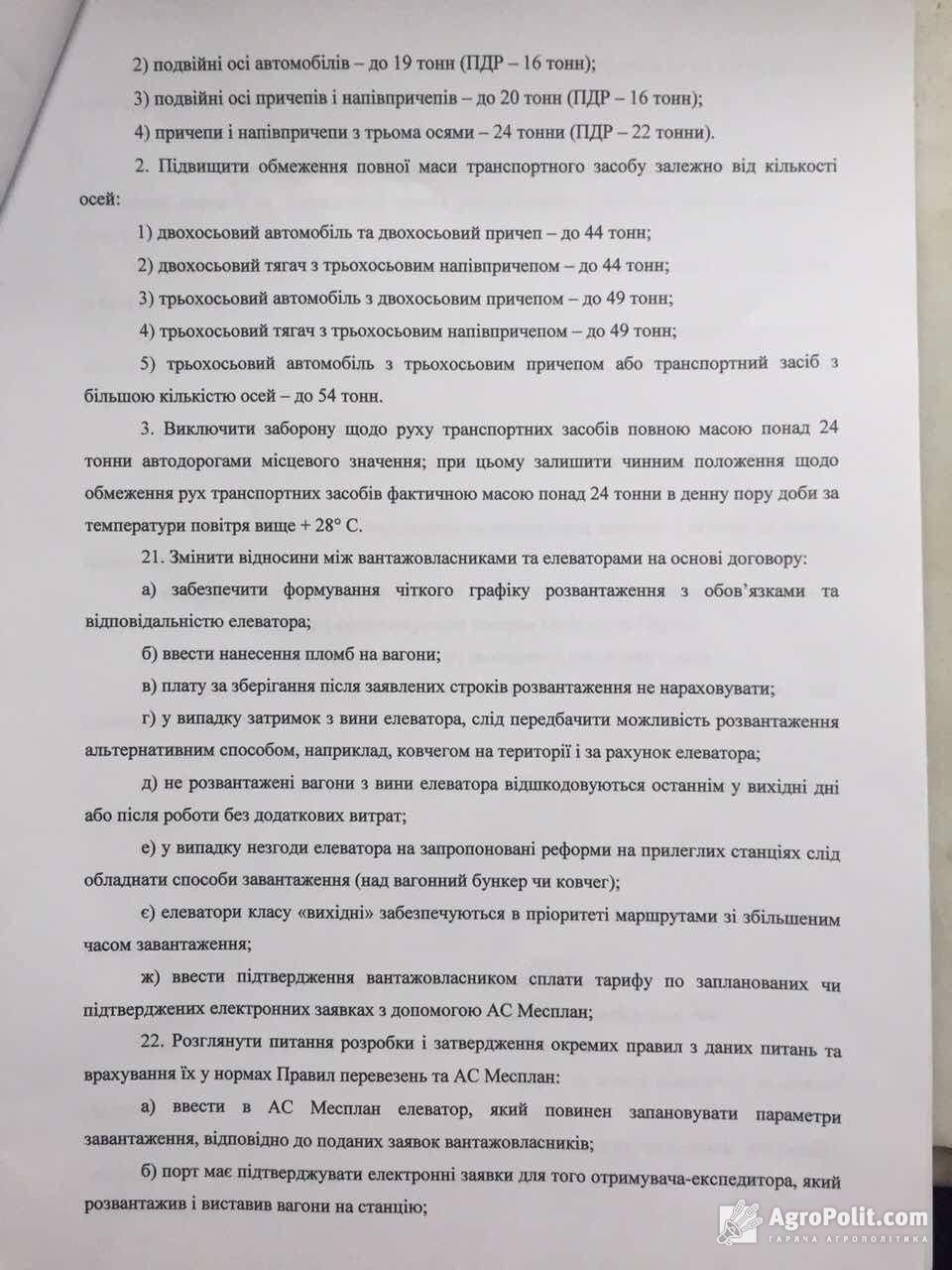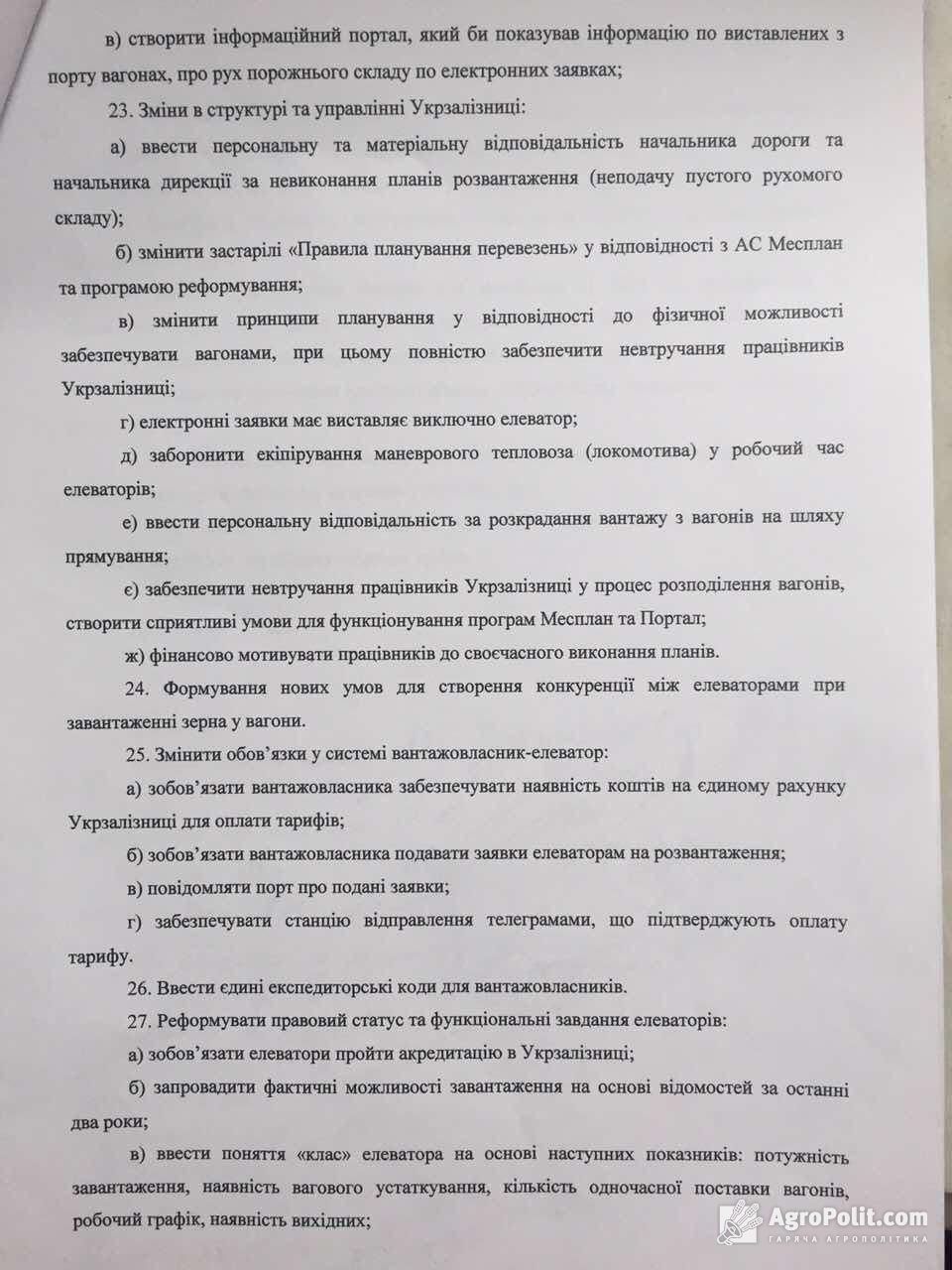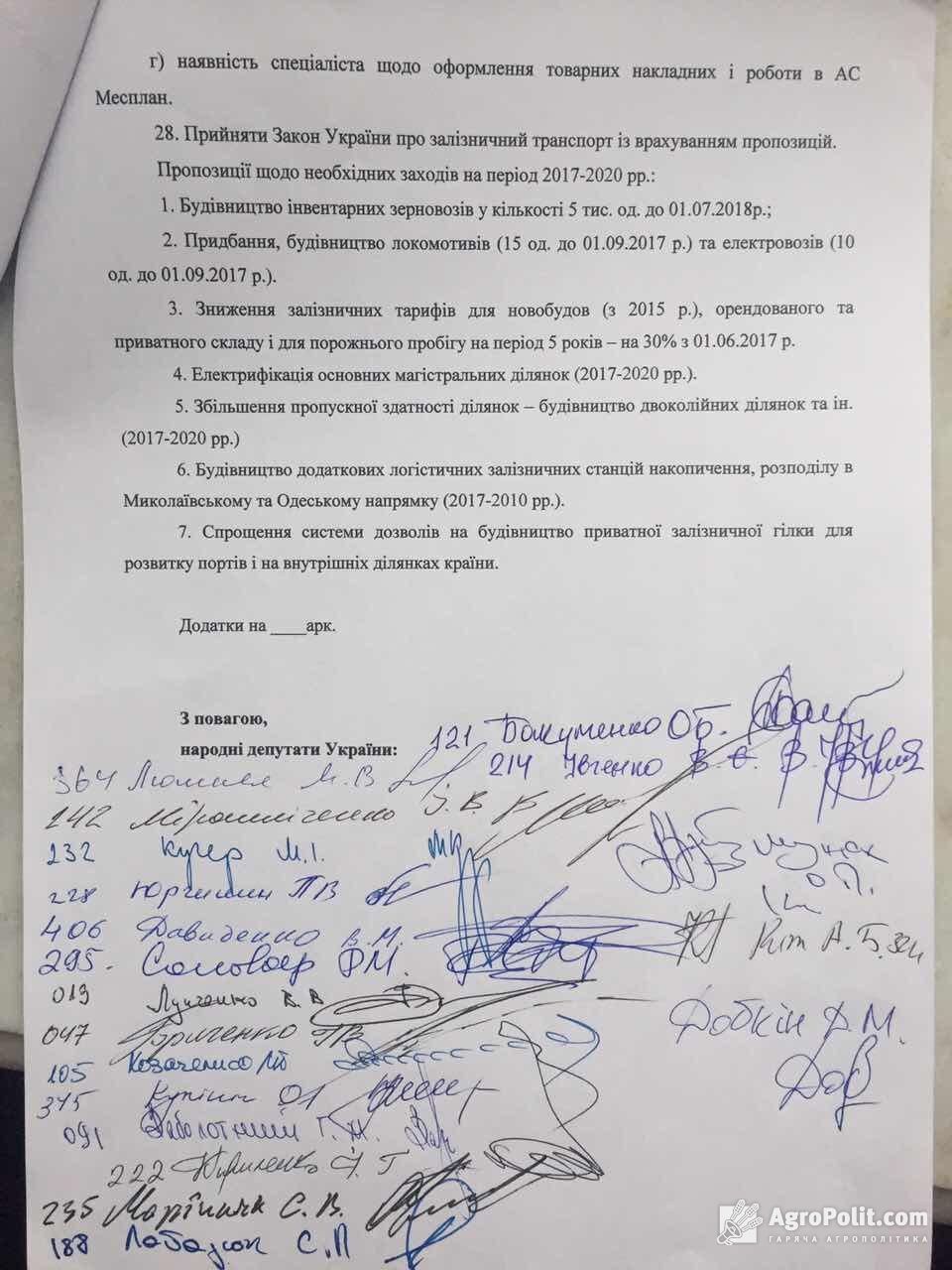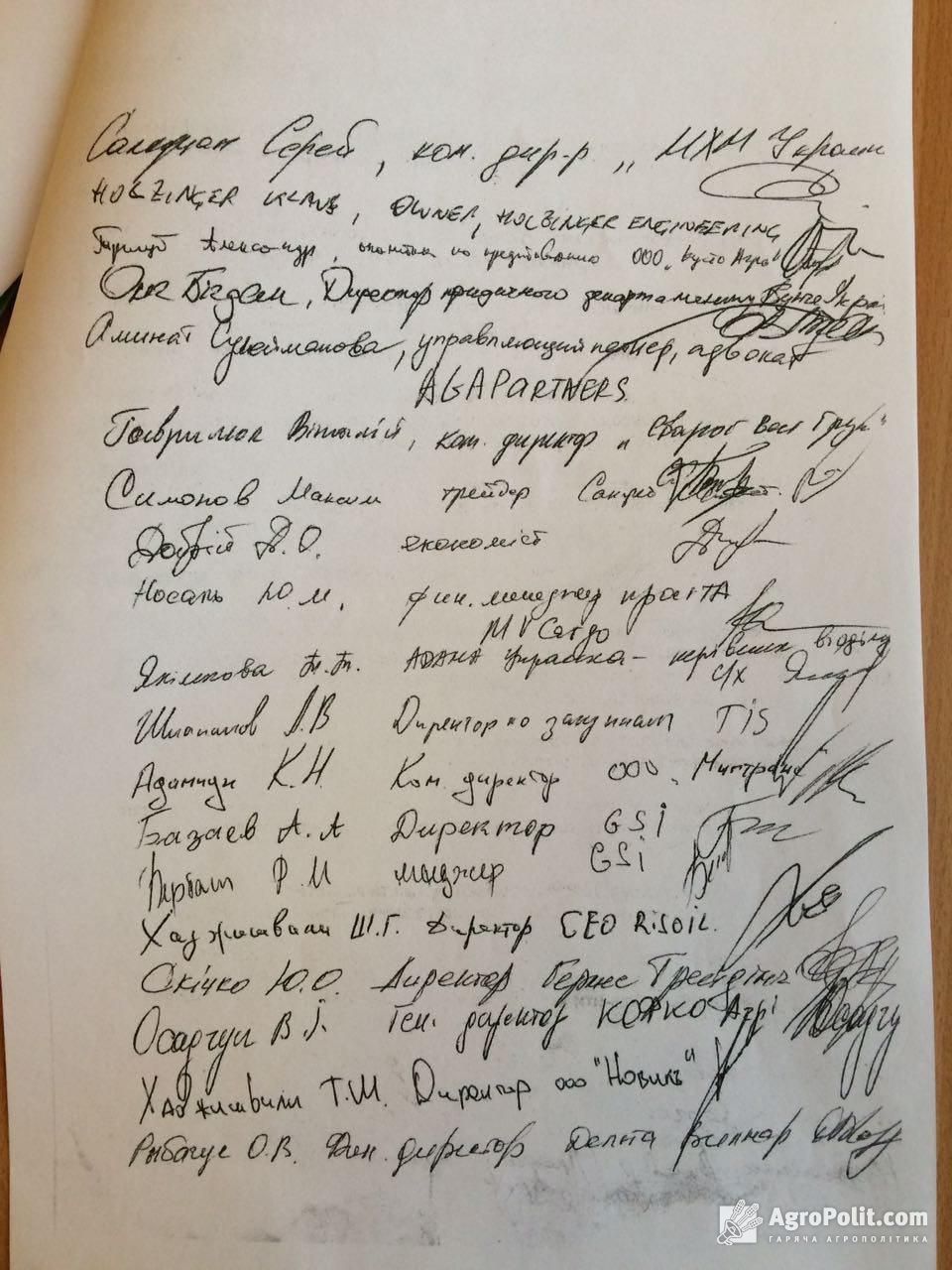Deputies ask Groysman to prevent transport collapse
People's deputies ask the Prime Minister of Ukraine, the Minister of Infrastructure and the head of Ukrzaliznytsya to take urgent measures to prevent a transport collapse in the sphere of transportation of agricultural products.
This is stated in the appeal of people's deputies, according to АgroРolit.com.
Dmitry Dobkin, Sergey Labazyuk, Vadim Ivchenko, Alexander Bakumenko, Ivan Miroshnichenko, Nikolay Kucher, Peter Yurchishin, Valery Davidenko, Oleg Kulinich, Grigory Zabolotny, Valery Lunchenko, Andrei Kit and other deputies of the Agrarian Committee signed the document.
"There is an acute shortage of freight cars on the railway market and the transparent system for the distribution of wagons needs to be urgent maintained. At the same time, there are restrictions for the transporting goods with an actual mass of more than 40 tons on the main roads and 24 tons by roads of local importance. The destabilized rail and road transport system contributes to a reduction in production volumes by lowering prices for producers, increasing the high logistics costs, decreasing the currency earnings, and resulting in unemployment for many people who work in agriculture, damage of agricultural products and increase the risks associated with logistics and international trade," these and other reasons were mentioned in the appeal.
The report notes that ignoring the issues that have developed in logistics due to periodic transport disasters, might lead to a complete transport collapse in the transportation of agricultural products in 3-5 years.
To improve agrarian logistics, the deputies propose to take a number of measures:
- Ensure, on equal terms, the turnover of the cars of the inventory and leased fleet for no more than 7-8 days;
- Make public quarterly reports on the number of wagon-grain trucks;
- Establish fines for Ukrzaliznytsia for failure to supply grain carriers according to confirmed orders;
- Carry out urgent repairs of existing grain trucks and diesel locomotives;
- Introduce an attractive tariff policy with discounts, so that business could invest in the construction of rolling stock and build 2-3 thousand cars a year;
- Oblige Ukrzaliznytsia to disclose information about locomotives on the balance sheet (number, types, degree of their deterioration) and daily requirements for diesel fuel (in the context of individual branches, locomotive parks);
- Impose restrictions on the general availability of wagons that are on the way to the indicated port to Ukrzaliznytsia for not more than 4-day norm of processing capacity in this port;
- Impose fines for Ukrzaliznytsia for failure to meet the delivery deadlines for its own and leased cars;
- Introduce a progressive rail tariff scale, depending on the number of wagons sent;
- Open online access to information on the movement of empty wagons with information on the shipper and the movement of shunting locomotives;
- Prepare a procedure for the liability of Ukrzaliznytsia for the loss of goods, which is confirmed by the acts, and funds compensation for the lost cargo;
- Change the system of wagons sealing to avoid stealing grain during transportation;
- Determine the state body that would monitor grain quality and cancel the restriction on the movement of vehicles with a gross mass of more than 24 tons by local roads (at the same time, leave provisions on restricting the movement of vehicles with an actual mass of more than 24 tons in the daytime at the temperature above 28° C) and others.
Previously it was reported that Ukrzaliznytsya offers consignors to buy grain carriers and provide them to Ukrzaliznytsya on terms of financial leasing.

